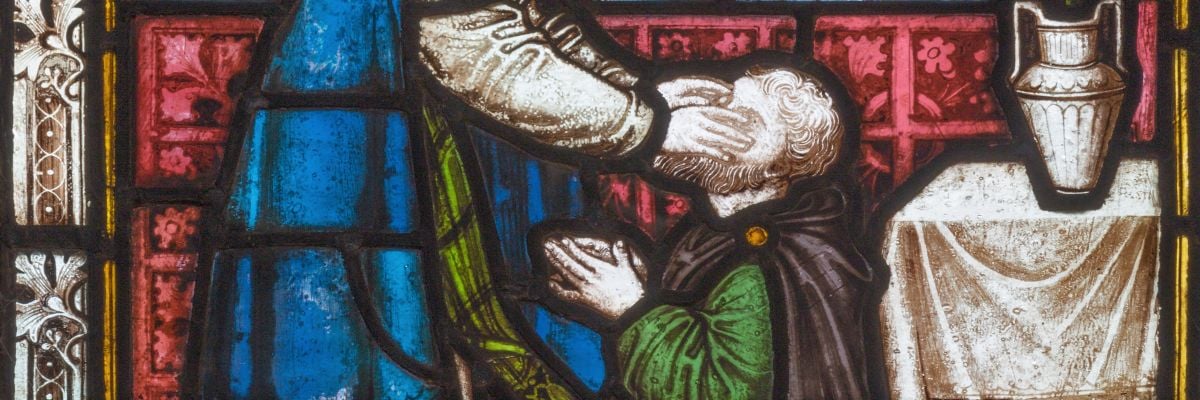
Question:
Answer:
He didn’t. Many mistakenly assume the Lord changed Saul’s name to Paul sometime after Saul converted from Judaism to Christianity, which happened during his encounter with Christ on the Road to Damascus (Acts 9:1-19). Unlike the instance of Jesus changing Simon’s name to Kepha (Gk. Petros) as a way of signifying the special role he would play in the Church (Mt 16:18, Jn 1:41-42), in Paul’s case there was no name change.
Saul of Tarsus was born a Jew, “circumcised on the eighth day, of the race of Israel, or the tribe of Benjamin, a Hebrew of Hebrew parentage, in observance of the law a Pharisee” (Phil 3:5). The Hebrew name given him by his parents was Saul, but, because his father was a Roman citizen (and therefore Saul inherited Roman citizenship), Saul also had the Latin name Paul (Acts 16:37, 22:25-28), the custom of dual names being common in those days. Since he grew up in a strict Pharisee environment, the name Saul was by far the more appropriate name to go by. But after his conversion Saul determined to bring the gospel to the Gentiles, so he dusted off his Roman name and became known as Paul, a name Gentiles were accustomed to.
Adopting his Roman name was typical of Paul’s missionary style. His method was to put people at their ease and to approach them with his message in a language and style they could relate to. We should take a cue from Paul as we engage in apologetics work. No, we don’t need to adopt new names, but we should accommodate ourselves to our audiences (and we mean here audiences as small as one person). We want to speak to people in their own styles, so far as we can, and we want to address their particular concerns. We don’t want to raise people’s hackles before we even have a chance to raise issues.
As Paul explained,
Although I am free in regard to all, I have made myself a slave to all so as to win over as many as possible. To the Jews I became a Jew to win over Jews; to those under the law I became like one under the law – though I myself am not under the law – to win over those under the law. To those outside the law I became like one outside the law. To the weak I became weak to win over the weak. I have become all things to all, to save at least some. All this I do for the sake of the gospel, so that I too may have a share in it. (1 Cor 9:19-23; see also 1 Cor 10:33, Rom 15:1)
For more, check out Fathers Know Best, by Jimmy Akin: a guide to understanding the early church.


